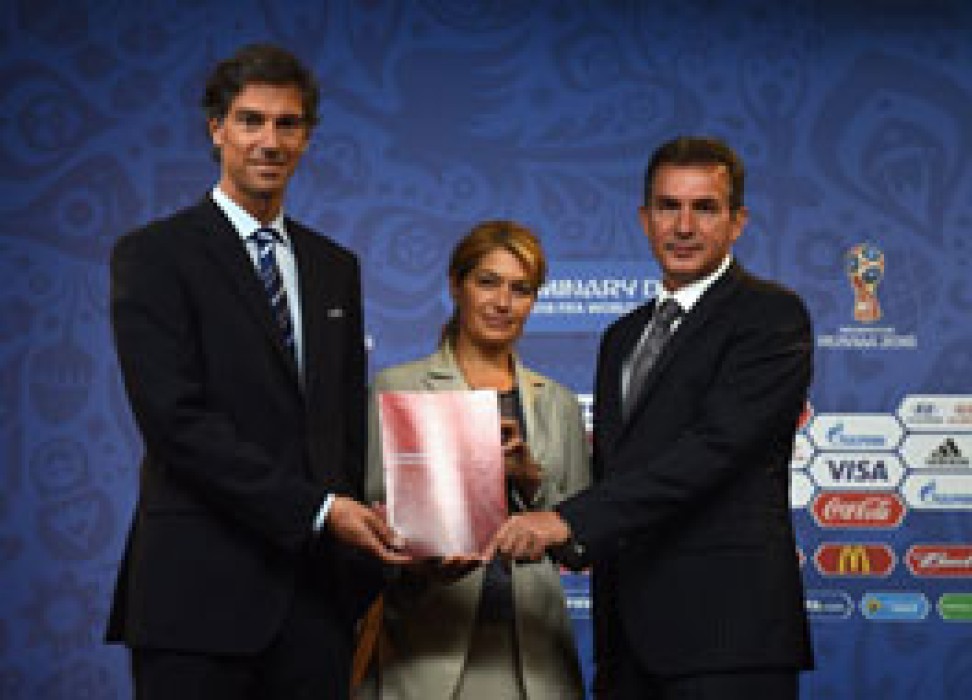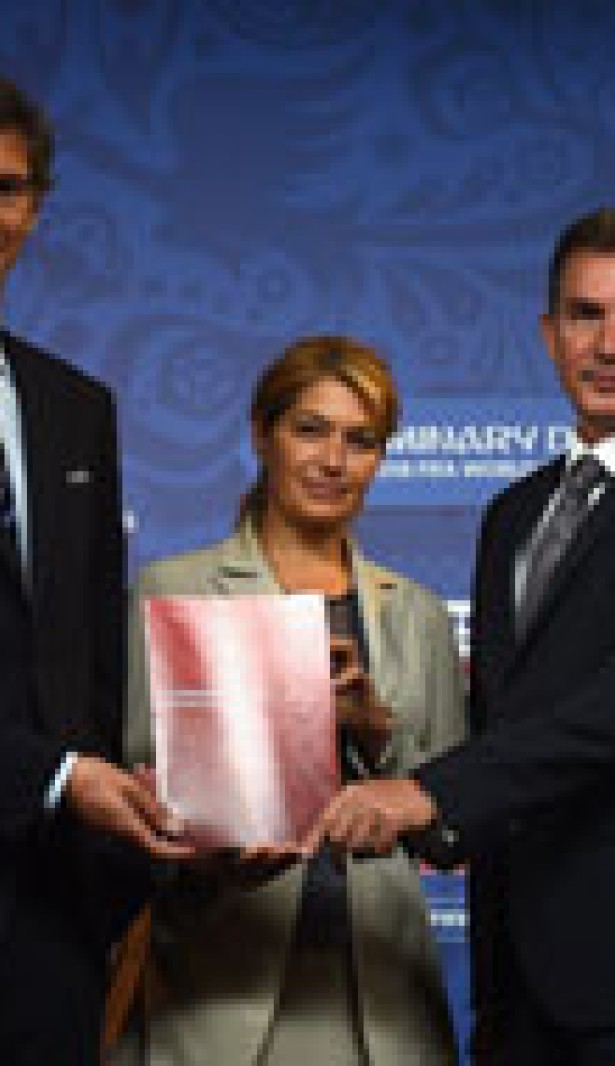2018 FIFA World Cup – an opportunity for respect for diversity
24 July 2015

The UN Human Rights Office cooperated with the International Federation of Football Associations (FIFA) and the FIFA World Cup’s Local Organizing Committee in launching a new World Cup Sustainability Strategy for the 2018 FIFA World Cup.
The organizers of the 2018 FIFA World Cup in Russia have vowed to reduce the potential negative impact of the World Cup on the population and maximize its positive effects on the economy and the environment. Combating discrimination is one of six key goals outlined in the strategy.
“The World Cup provides an opportunity to look at challenges in social life. An area where challenges remain and work needs to be done is inclusivity and non-discrimination. The Sustainability Strategy provides a good basis to work on those issues,” said Yury Boychenko, Chief of the Anti-Discrimination Section at the UN Human Rights Office, during the launch in Saint Petersburg, Russian Federation, on 23 July.
Racism and other forms of discrimination have been the focus of much attention for the past decade, particularly in European football. In January 2013, former AC Milan player, Kevin Prince Boateng, led his team mates off the pitch to protest against racist chants during a friendly match with Pro Patria football club in Italy. This was one of the many incidents that led the Union of European Football Associations (UEFA) and FIFA to reinforce its governing statutes to apply a “zero tolerance” policy towards all forms of discrimination in the sport.
“FIFA has a zero tolerance policy when it comes to discrimination and we are stepping up the fight against this evil in our game,” stressed FIFA’s Head of Sustainability, Federico Addiechi.
“The FIFA World Cup and this sustainability strategy will drive innovative standards and practices forward in many different areas. Our holistic approach covers social, economic and environmental matters,” added the LOC’s Head of Sustainability, Milana Verkhunova. “An environment free of discrimination is also very important to the organizers.”
24 July 2015

